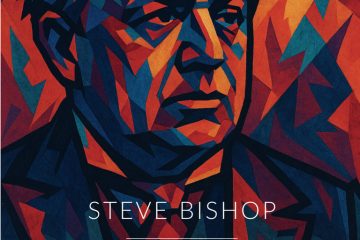William Sleeman was one of the most accomplished and innovative detectives ever to have lived. He was born in 1788 in Stratton, Cornwall. From a young age William wished to serve abroad in the army of the East India Company. He had studied both Arabic and Hindustani for three years in England before reaching the minimum age for direct entry and so was already quite fluent in two difficult Oriental languages when he arrived in Calcutta in October 1809.
Sleeman was a diligent and responsible soldier. Unlike most of his contemporaries he was sober. A typical British officer at this time would ‘put back’ something like three bottles of claret during an evening session. This boozy lifestyle was more or less obligatory. Any officer who left the table before his fellow officers had finished their drinking would be mocked and insulted. Inebriated, cigar-smoking fellows would cry out – “Cock tail”, “Milk sop” or “Shabby fellow”.
In the 1820’s Sleeman began hearing stories about ‘thugs’. These were professional assassins who plied their trade on the dusty roads of India. These ruthless, cold-hearted killers were worshippers of the Hindu goddess of destruction, Kali. Ritual murder was their calling card. Some people have claimed that the thuggee cult was responsible for the deaths of two million people!
Bands of thugs wandered the Indian sub-continent posing as innocent pilgrims, tradesmen, or even soldiers, in groups numbering anywhere from a few men to several hundred. Offering protection or company, they would befriend fellow travelers and slowly gain their confidence along the road. When the time was right, often while their targets were encamped and at their most relaxed, a signal would be given —reportedly “Bring the tobacco”—and the fiendish thugs would pounce. Each member had a well-honed task; some distracted their victims, some made music to mask any cries, while others guarded the campsite from intruders and escapees. Thugs of the highest rank performed the actual murders. The usual method was strangulation with a silk handkerchief. The thugs plundered and then hid the corpses, often by burying them or by throwing them in wells. One infamous thug, Bahram, confessed to having strangled 931 innocent people with his turban.
Thuggee rites included sugar sacrifices and axe-worshipping ceremonies in honour of Kali. Thugs were incredibly superstitious. They were obsessed by an intricate array of omens which guided them on their outings. If any thug was heard to break wind during an expedition it was believed to be very inauspicious. Five blows of a shoe inflicted upon the head of the careless farter would mitigate the offense to the goddess Kali. Perhaps the worst portent of all was the cry of a baby owl. This would signal impending disaster. Everyone would pack up and return home.
Sleeeman was a committed Christian and his sober and upright character was soon bearing fruit in the detection and elimination of the thug cult. Sleeman revolutionized police techniques as he set about his task. He had a real love for ordinary Indian people and he spent many hours listening to the stories of mothers and fathers who reported that their beloved spouses and children had vanished while visiting friends in other cities. Sleeman was the first detective in history to employ informers as a key weapon against the criminal gangs. His files – which were by now among the most detailed and comprehensive ever assembled by any police force – had become an invaluable resource in tracking down the deadly assassins. Sleeman’s men, rather than passively waiting for their opponents to strike, actively pursued them. In doing this, they created a new template for detective work.
Thug carnage became increasingly rare after 1835 when Sleeman was delighted to discover that not a single sepoy (Indian soldier) had vanished without trace between his home and his barracks while on leave. By 1838, Sleeman had captured and tried a total of 3,266 thugs, while several hundred more were in prison awaiting trial. Many had been executed while many more were serving life sentences. By no means had all thugs been brought to justice. Yet Sleeman had effectively destroyed thuggee by developing such a successful system of getting thugs to identify other thugs that those who were not captured were completely demoralized.
The evidence suggests that God protected and watched over the life of this deeply Christian detective. One day he was in his study when he had a premonition of danger. Carefully he drew aside the curtain behind him and there in the alcove was a concealed thug brandishing a large dagger. Unperturbed, Sleeman, nonchalantly pointed at the intruder and declared – “You are a thug.” The man promptly dropped the knife and ejaculated politely – “Yes, sahib.”
Many Hindus were so deeply appreciative of Sleeman’s success in destroying thuggee that a village to the north-east of Jubbulpore was renamed Sleemanabad. In 1856 Sleeman decided to return to England. On the 10th February, off the coast of Sri Lanka, Sleeman died and was buried at sea.
- The Story of Fred Lemon who met Jesus and Two Angels in Prison - November 26, 2025
- The Inspiring Story of Abraham Kuyper (1837-1920) - October 22, 2025
- Fifteen False Prophets and Testing the Spirits - September 29, 2025



2 Comments
Hugh · October 23, 2023 at 8:57 pm
Mark, you description of the Thug culture is fascinating, and their practises show a very organised crime. I especially like that ‘breaking wind’ was inauspicious, and I confirm that it remains so in polite society. Luckily today’s football thugs are somewhat less dangerous that those Sleeman dealt with. Thank you for yet another interesting article.
Jim Skillen · October 24, 2023 at 4:35 pm
I liked the story a lot, Mark, and the details about how he organized the detective methods, kept thorough records, got thugs into court, and comforted the people threatened by thugs are great. I’m reminded of two passages of Scripture that identify faithfulness to God and living by faith in the human offices and responsibilities they had.
One is Jeremiah 22:11–16 where God condemns Josiah’s son King Shallum for using his office as king to enrich himself instead of doing what his father did when he was king. Josiah had sought to do justice in all humility. And God says of Josiah (through Jeremiah) “Is not this what it means to know me? says the Lord.” To know and serve God appropriately in an office of responsibility, is to know him (meaning to obey, love, and understand’s God).
The other passage is Heb. 11:32–34. After speaking of the most “famous” Israelites who had lived by faith, the passage turns to others, including those whose names we do not know: ” . . . who through faith conquered kingdoms, ADMINISTERED JUSTICE,,obtained promises, shut the mouths of lions, quenched raging fire, escaped the edge of the sword, won strength out of weakness . . . .”
Sleeman obviously took up a position to establish and administer justice.
Thanks,
Jim
Comments are closed.